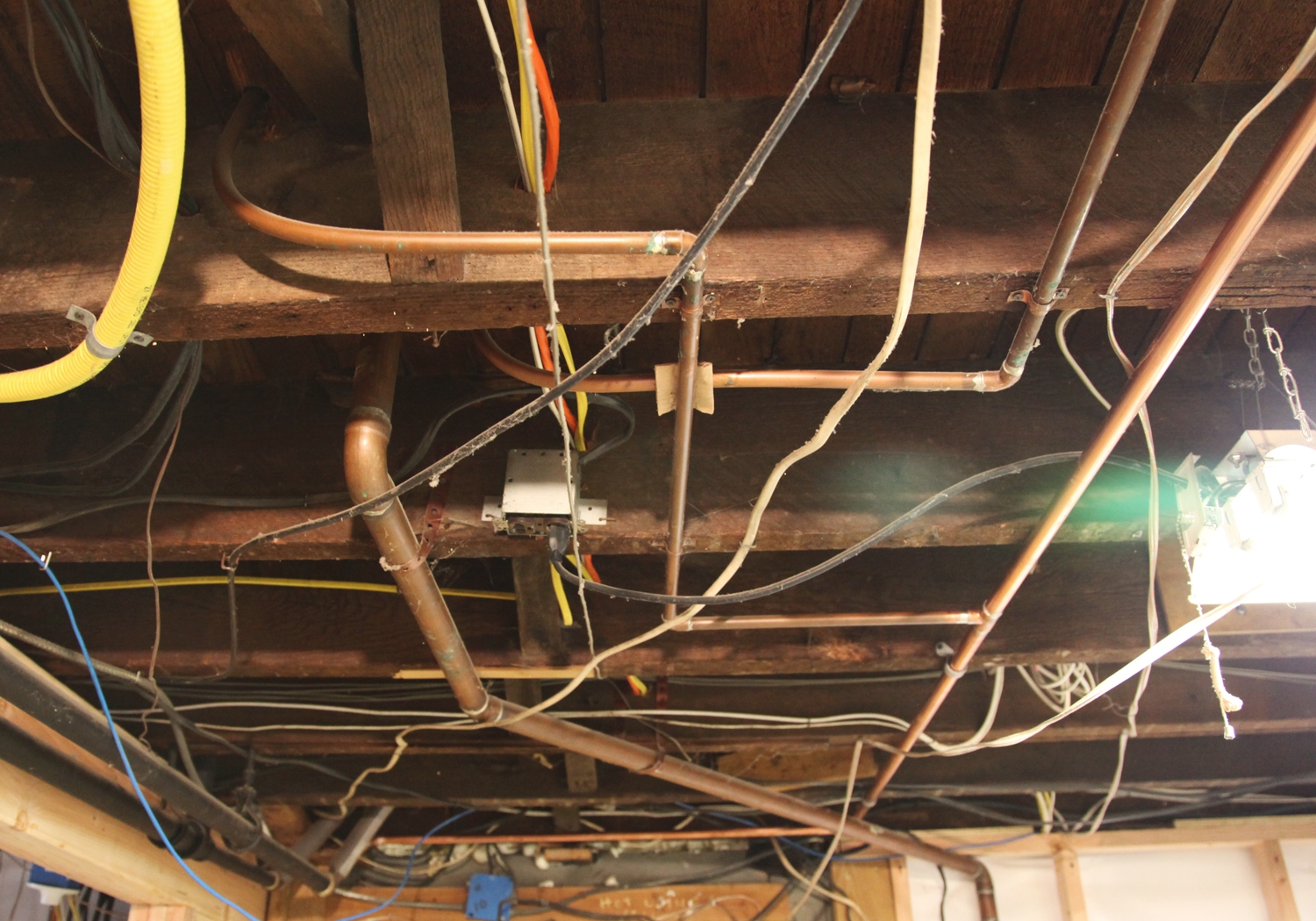
Protect Your Family: Basement Wiring Safety Tips
Electricity is not visible; you cannot smell it or hear it. Therefore, the only way to ensure the safety of the basement is to have a proper electrical system to manage this dangerous energy and the basement wiring inspection.
Electricity has two significant dangers:
- Electric shock
- Flash Arc
Electrical safety comes from your basement wiring inspection and keeping you safe from hazards like arc flash and shock. These dangers can threaten your life.
Fortunately, the probability of this happening is relatively low. However, control measures that prevent these hazards require careful management, attention to detail, and technical competence.
The injuries caused by electric shock are as follows:
- Cardiac arrest due to the electrical effect on the heart
- Destruction of muscle, nerve and tissue due to the current passing through the body
- Thermal burns due to contact with an electrical source
- Fall or damage after contact with electricity
The injuries that may be caused by arc flash are as follows:
- The high temperatures produced by the arc cause burns
- The ultraviolet light produced by the arc leads to blindness
- The pressure wave caused by the arc explosion causes deafness
12 electrical safety tips and basement wiring check
- Be careful of damaged power cables.
You should regularly check all power cables and internal wiring to contact certified technicians if they need repair or replacement. I recommend contacting KCS Group to ensure the safety and cost of replacing your basement wiring.
As a general rule, don’t run cables under carpets and furniture, as they can risk fraying, overheating, or crushing and damage.
- Do not overload outlets.
Overloading outlets is one of the most common causes of electrical fires. Connect only one electrical device that generates a lot of heat to an outlet. Always make sure the sockets are cold.
- Keep electrical devices away from moisture.
Water and electricity are a deadly combination. To comply with electrical safety regulations, keep all electrical equipment from moisture. In Canada, due to heavy rains, basements are wet. Do the basement wiring inspection frequently to ensure it is dry.
If you use electrical appliances with wet hands, the risk of electric shock is high. Finally, always unplug the electric kettle before filling it!
- Keep unused cables tidy and secure.
Worrying about their electrical safety when you use cables would be best. Meanwhile, store them safely even when you’re not using them. It is better not to wrap the wires around objects (such as a hair dryer or a laptop plug) because it will cause them to stretch and overheat. Avoid placing the power cable on a hot surface because it will damage the insulation and wiring.
- Unplug all electrical appliances.
A device that is plugged in is safer than one that is off. If your sockets are hard to reach, such as behind bookshelves or sofas, invest in a smart plug or power strip.
- Consider space for air circulation.
Electrical equipment should be in a place where air circulates to keep it cool during operation. Otherwise, they will overheat, and there is a risk of fire.
Do not place anything on electrical appliances such as microwaves, and do not install electrical appliances in closets. If you’re using a freestanding heater, make sure it’s at least a foot away from the wall.
- Make sure all exhaust fans are clean.
Check electrical appliances that have an exhaust fan. If the fan of these devices is dirty and blocked, it will threaten you with danger. Keeping them clean keeps them energy efficient and helps prevent them from becoming a fire hazard.
- Keep electric heaters safe.
It may seem logical but keep flammable items away from heaters. Portable heaters should not be used near curtains and should always be on a flat and stable surface. When checking the wiring in the basement, you should also check the wires near the heater.
- Check the fuse.
Replacing the fuse on the plug is easy, but make sure you use the correct fuse for the appliance. Using the wrong fuse can cause the cable to overheat, meaning the device is unprotected against electrical faults.
However, I advise you not to do this by yourself. Quickly contact KCS Group experts and ensure your family’s safety.
- Avoid consuming low-quality goods.
Avoid using fake electrical goods (such as hair straighteners with fake brands), which are the leading cause of electric shock and fire. Be careful with items purchased outside of Canada or imported into this country. These products may not comply with national safety standards.
It also applies to batteries and chargers. Try to only buy branded chargers for your laptop or phone officially, ideally directly from the manufacturer.
- Check that you are using the correct wattage.
Energy-efficient LED lamps have reduced this concern by entering the market. They heat up less than the old incandescent lamps and use the correct wattage. It should be noted that using the correct wattage of the light reduces the occurrence of electrical problems. So always check the required wattage of the appliances first.
- Always follow the manufacturer’s instructions.
The best advice when using any electrical appliance is to “read the instructions.” Proper use of devices improves their performance and keeps you safe.
If any device gives you even a mild electric shock, stop using it immediately and have it checked by a qualified electrician, such as the technicians at KCS Group. Please do not attempt to repair it yourself.

4 electrical safety tips for the bathroom
Do you now know enough about the dangers of being near electricity and water? That’s right; they don’t mix. Considering it, the bathroom is potentially the most dangerous part of the basement. Bathrooms must comply with strict safety regulations. So, if you need to do anything, use a professional electrician. Follow the instructions and live in complete safety.
- Outlets
It is not allowed to use electrical outlets in the bathroom or shower room. If you need an outlet to plug in an electric shaver or toothbrush in the bathroom, you should install them at a suitable distance from the water or shower.
- Lighting
Many bathrooms have long wiring instead of light switches. Or, more often, the light switch is outside the door because if you touch a switch with wet hands, there is a severe risk of electric shock. You should pay special attention to this point in the basement wiring inspection.
- Heating
Central heating is the safest way to heat your bathroom. Any electric heater must be fixed and permanently wired, not plugged directly into an electrical outlet.
- Portable devices
Hair dryers, radios, laptops, and other portable electrical appliances connected to electricity should not be connected to the bathroom. If they get wet, they can cause severe injury or death.
Read more: what is meant by basement wiring



